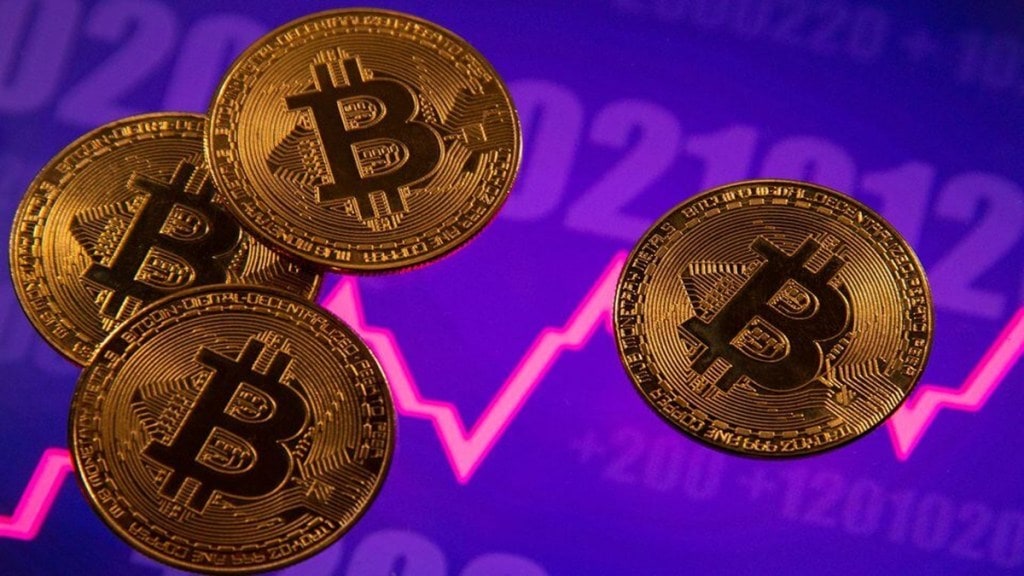Exchange-traded funds that invest directly in Bitcoin have been approved by the US regulator. What this means is that owning Bitcoin investments becomes more accessible to investors. The approval means that both retail and institutional investors can now diversify their portfolios with Bitcoin exposure without worrying about the complicated concerns of custody.
On Jan 10, 2023, the US Securities and Exchange Commission (SEC) approved the listing and trading of some spot bitcoin exchange-traded product (ETP) shares. Incidentally, the Bitcoin ETF was first proposed by Tyler and Cameron Winklevoss in 2013.
Post the ETF approval from the regulator, Bitcoin briefly crossed over $47,000. Bitcoin has already risen more than 160% in the previous 12 months in anticipation of the ETF approval and looser monetary policy.
Till now, investors have been exposed to Bitcoin through brokerage houses, mutual funds, peer-to-peer payment apps, cryptocurrency trading platforms, and other means. From January 11, investors can look forward to investing in at least 12 Bitcoin ETFs.
Futures ETFs were already in practice but now spot Bitcoin ETFs have been approved. Futures ETFs involve contracts for bitcoin exchange at specific price points, providing price gains without holding the volatile asset.
US Sec also has a cautionary note for investors. The statement issued by the Commission states – While we approved the listing and trading of certain spot bitcoin ETP shares today, we did not approve or endorse bitcoin. Investors should remain cautious about the myriad risks associated with Bitcoin and products whose value is tied to crypto.
Here is what industry experts have to say:
Viram Shah, CEO, Vested Finance
The much-anticipated Bitcoin ETF is finally here. The approval from the SEC will allow trading of the world’s largest cryptocurrency from today itself and thus opens opportunities for all crypto enthusiasts across the globe.
For Indian investors, the Bitcoin ETF will provide an opportunity to include crypto in their portfolio via the LRS route. Like any other asset class, Bitcoin ETFs also come with their own sets of advantages and disadvantages.
An Indian investor taking exposure to Bitcoin ETF will get easy exposure through regulated entities without worrying about the storage of the cryptocurrency.
Besides, 1% TDS on transactions will not be applicable since there is no actual crypto being purchased and capital gains tax will also be lower. On the other hand, the 20% TCS introduced in 2023 will be applicable on deposits above INR 7 Lakhs via LRS.
Although, unlike TDS, it can be used to offset other tax liabilities but may lead to liquidity getting stuck.
Roshan Aslam, Founder and CEO of GoSats
An ETF is a simple way to invest into assets or a group of assets without needing to buy the asset directly by themselves. The US SEC approval of the Bitcoin ETF would mean that investors would be able to get into the world of crypto without having to take extra steps involved in buying Bitcoin.
The introduction of a Bitcoin ETF could impact the crypto markets substantially, by increasing accessibility, liquidity and investor interest.
Over many years now, cryptocurrencies have established themselves in the global financial landscape, attracting both institutional and individual investors.
In the era of digital assets, Bitcoin ETFs emerge as a vital innovation, as this gives investors security and confidence to diversify their investments in Bitcoin. The Bitcoin ETF approval is the biggest legitimacy signal for this industry and it is here to stay.
Avinash Shekhar, Chief Executive Officer, Pi42, India’s first Crypto-INR Perpetual Futures Exchange
The approval by the US SEC to trade Bitcoin ETFs is an encouraging step towards the gradual acceptance of digital assets as a mainstream asset class by the global financial ecosystem.
This is indeed a historic moment for all digital asset enthusiasts as it will pave way for further adoption of the world’s largest cryptocurrency through large financial institutions. Digital assets are indeed the flagbearer of alternative asset classes that all modern-day investors should consider taking exposure on to fulfill their financial goals.
The optimism brought about by this move will augur well for the global crypto industry and I believe more Indian investors will make the most of this decision and start including digital assets in their portfolio.
I am equally hopeful that this will also facilitate more discussions among the Indian ecosystem and very soon India will have its own crypto ETF.
Nischal Shetty, CoFounder, Shardeum
The introduction of a Bitcoin ETF marks a significant milestone, bridging the traditional financial markets with the innovative realm of digital assets. This landmark development not only validates the growing importance of crypto but also opens new avenues for institutional investors to participate in the transformative potential of blockchain technology.
We have seen that approx 5% to 10% of Gold ownership is through ETFs. With the Bitcoin ETFs, people are expecting a good % of Bitcoin ownership to be routed through the ETFs.
This makes Bitcoin more accessible to those who have been comfortable trading in the traditional financial markets.
If Bitcoin ETFs reach similar figures as gold, then at the current market cap that’s potentially $50B to $80B in new liquidity.
Embracing this evolution, we are witnessing the convergence of two worlds, where the decentralized ethos of crypto meets the regulatory framework of traditional finance, paving the way for a more inclusive and resilient financial ecosystem. This is the first digital asset ETF but it won’t be the last.
